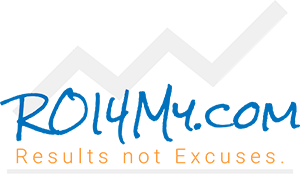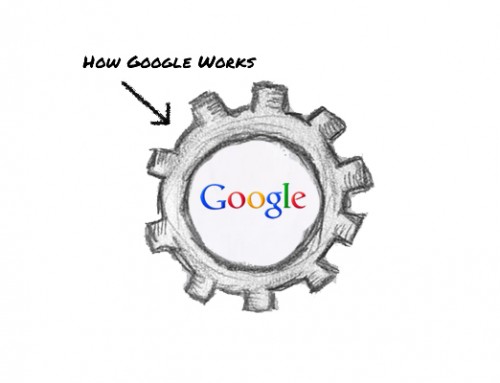Part of delivering effective SEO services is understanding the current climate of search based website traffic. By that I mean staying up to date on what Google is up to and the other search engines. This year (2012), there have been some major algorithm changes by Google named “Panda” and “Penguin”. To understand the changes, you need to understand a little about Google and what motivates their work. You also need to understand what a “Google User” is. Once that is all clear you will see our 2012 – 2013 Google Approved SEO Strategy makes perfect sense and will deliver the results our clients have come to expect.
What motivates the work Google does
Google’s mission is “To Organize The World’s Information” (think about that a minute) and their Motto is “Don’t do evil”. Since the internet is the “Information Super Highway” they spend a lot of time and money organizing the web. A big part of that initiative is sorting out the invaluable, duplicate, spammy content from the quality, relevant and unique content and making that good content available to their users.
What is a Google “User”
We are all Google users. Anyone that uses the Internet and has made Google their search engine of choice is a Google user. Think of us as Google’s customers. Although we don’t pay them anything, we use their service. Their focus as a company (among other things) is to deliver the most relevant results as fast as possible to our search query.
What changed in SEO in 2012
Recently Google did 2 major updates to their search algorithm. Google gave these updates names and chose “Panda” for the first big update last year and “Penquin” for the 2nd big update this year. Fully explaining the updates is beyond the scope of this post (You can check out this great post by Nick Stamoulis) but here is the short version: Panda is designed to reduce rankings for low-quality sites—sites which are low-value add for users, copy content from other websites or sites that are just not very useful. At the same time, it will provide better rankings for high-quality sites—sites with original content and information such as research, in-depth reports, thoughtful analysis and so on. Penquin is an algorithm change targeted at webspam. The change will decrease rankings for sites that Google believes are violating Google Quality Guidelines. Google mentions that typical black hat SEO tactics like keyword stuffing (long considered webspam) would get a site in trouble, but less obvious tactics (like incorporating irrelevant outgoing links into a page of content) would also cause Penguin to flag your site.
Another change Google seems to be rolling out is delivering content right in their search results in an effort to prevent their users from having to actually visit a website to get the information they want. If they can save their users a click, they have done a better job for them. I think that might further shake up the SEO world a bit! Now Google is becoming a content provider, not just a search engine.
Now more than ever, SEO is no longer about tactics like buying links on other sites, blog or forum networks built just to create links to other sites, duplicated content for every city you want to bring business from, hundreds of directory links, over using keywords in your copy, submitting the same article to article directory sites all over the Internet or other “black hat” tactics that once worked to game the search results. THE GAME HAS CHANGED and we suggest you play by Google’s rules or face extinction (unless you are smart and include methods other than Google in your Internet marketing strategy).
Our 2012-2013 SEO strategy is about these 7 things:
-
- ROI and Results: Because SEO has an expense involved we focus on getting our clients short term gains and achieving long term goals all at once. The short term gains mean increased business and revenue quickly. The long term goals are geared towards catching up to and overtaking top competitors. We do this through careful selection of keywords and campaign targeting. Our approach is all about finding the “right” traffic that will produce ROI. Not just traffic.
When we do keyword research we create a list of words that appear to be relevant to the site and to the goals of the client and then refine those. By goals we mean the conversion actions on the site. We frequently use the words “Searcher Intent”. Searcher Intent represents the intent of the person using the search engines. Strong searcher intent means words that would suggest someone is looking to “buy” or “hire” versus “research” or do it themselves. These type of words ultimately lead to conversions, not bounces.
We vary search volume, not just focus on high search volume. High search volume keywords are the most competitive and unless a website is a leader in it’s industry, has been online many years and is considered an authoritive website according to Google, chances are it will not rank in the top 10 of Google (1st page) for those words. We do work towards getting the site to rank for those keywords, but we also focus on easier, less competitive keywords as well for faster ROI.
We try to vary every word if possible in the key phrases we choose. More unique words means more possible chances for Google to rank the page for one of those words. “Stop words” are not taken in to consideration as Google ignores those. This includes words like “if”, “and”, “the”, “a”, “in” etc. If you Google “stop words” there are a number of lists out there.
The keywords chosen are targeted to the page content. It all needs to match for Google to rank the page high.
- Website Architecture: We perform detailed analysis on our clients site architecture and monitor Google webmaster tools on a regular basis to keep the sites health in top shape. We make sure to follow SEO best practices when building the site and adding new content and focus on keeping the code lightweight and fast.
- Benefits: Google and the other search engines are still all about keywords and matching words to their users search queries. More pages indexed by Google directly translates into more possible search query matches on your site versus a competitors.
- Strong Title tags and META descriptions: This is what people see about your site in search engine results pages. The title tags are critical to SEO and both are critical to attracting clicks from the search engine results pages. We consider writing these pure art and spend quite a bit of time perfecting them for each landing page on the site.
- Benefits: More traffic from the right targeted audience brings more business and conversions from the search engines.
- Developing new content: We add quality, relevant, unique content to our clients website on a regular basis. Focus is on content your target audience will want. The best way to do this is with a blog and landing pages.
- Benefits: Instantly brings new traffic and builds your reputation with prospects and customers.
- Content promotion: When new content is added we use Social Media, Press releases, Social bookmarking and other 3rd party sites to get it in front of as many people as possible while encouraging them to link to it and share it. We also submit it directly to Google via Google Webmaster tools for fast indexing.
- Benefits: Creates more exposure for your business on the web besides search engines and generates links which help your authority and ranking.
- Link Earning (no longer link building): We work with you to develop great content which builds your authority so that others will WANT to link to it, talk about it and share it.
- Benefits: Links from other sites are still a very strong signal the search engines use to rank websites in the search results. A link or a “mention” (your site mentioned on the web without a link) is considered a vote. Google counts these votes. Increased links = better position. Better position means more traffic and conversions.
- Building your audience: Social Media is no longer a buzzword fad. It’s important, your competitors are doing it, but many companies are not doing it right. We will work with you to either provide a Social Media Strategy or help you develop your own.
- Benefits: Giving your brand a human voice is a great way to engage your audience and build relationships with your prospects and customers. Interacting with them in this way builds their trust and confidence in your company and will keep them coming back to you and your business. If you want to do it right you need to get personal. Show them who you are and what you and your company are all about.
Have you made any changes to your SEO strategy this year? What are they? Did Panda or Penguin affect your business? Let us know in the comments below. It did not affect our clients at all. We have been providing Google approved SEO strategies for quite some time and our clients are moving up in the rankings and enjoying increased traffic and business while others that took short cuts and followed bad advice are getting penalized and dropping. Get in touch today and let us get your SEO program on track.




FOLLOW US